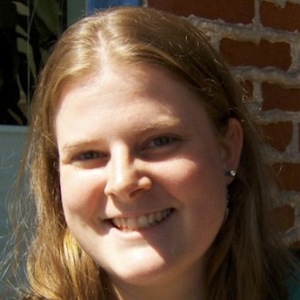Kate Hertweck, PhD 
Assistant Professor
University of Texas at Tyler
Department of Biology
Website: sites.google.com/site/k8hertweck
Blog: k8hert.blogspot.com
What inspired you to start research in computational biology?
I couldn't imagine working in computational biology when I was an undergraduate! As I developed my own research project during graduate school, though, I realized the power of computational tools in making biological research more efficient and interesting. More importantly, I found out I enjoyed programming, and learning these analytical techniques wasn't as insurmountable a task as I previously thought.
What are 5 important skills needed for your research?
- Communicating with people who have expertise that is different than mine
- Finding good resources for teaching myself things (programming languages, statistical tests, etc)
- Patience and persistence in troubleshooting
- Applying methods of analysis in interesting and creative ways
- Asking for help from people who know more than me!
How did you learn the computational and quantitative skills necessary for your work?
I wish I had taken more math, statistics, and computer science classes in school. I am mostly self taught, but have had a few fantastic mentors who also helped me find workshops. I learned a lot from the folks at Software Carpentry (http://software-carpentry.org) and am now learning how to teach their classes. I also like free online classes like those through Coursera (https://www.coursera.org).
What important questions do you address in your research?
I'm interested in how genomic changes affect organismal evolution. I work in lots of different organisms (plants, animals, bacteria, etc) to characterize patterns of genomic variation, which I then correlate to changes in phenotype (morphology, life history, habitat). Some examples of questions I address include: Is genome size related to growth habit? Are rates of molecular evolution related to life history traits?
Additional thoughts...
I just started my dream job as assistant professor, specializing in genomics and bioinformatics, and there is space in my lab for a master's student interested in working on genome evolution while developing bioinformatics skills. Don't be afraid to talk to me or other professors about how you can learn more as a computational biologist!
